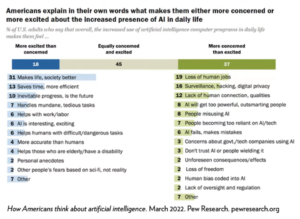
A thousand people joined The UW Now’s March 14th livestream titled “Artificial Intelligence — Facts vs. Fiction.” In addition to featuring Sharon Yixuan Li, Jignesh Patel and Blaine Hoak from the School of Computer, Data & Information Science (CDIS), founding director Tom Erickson served as the first guest host for the series.
The popular Wisconsin Alumni Association (WAA) series connects alumni with university experts about groundbreaking discoveries happening on campus right now. With artificial intelligence (AI) applications like ChatGPT and Midjourney making headlines, there were plenty of insights for the panelists to share and questions to address.
Sharon Li, a professor of computer sciences since 2020, focuses on deep learning and machine learning. She spoke about how to make AI safe and reliable for the open world. In the livestream, she addressed how AI models are usually trained in a closed-world situation where training and testing distributions match. This results in situations where AI such as a driverless car, are not prepared for the unknowns that emerge in an open-world situation. To help machine learning models deal with unfamiliar data, she aims to develop a generic algorithm based on a generalized formulation that hopefully can be plugged into different use cases.
 As a doctoral student in computer sciences, Blaine Hoak addressed trust, expectations and failures about AI. Referring to data from Pew Research’s 2022 data on how Americans think about AI, she noted that many of us do not know how to think about AI. In her presentation, she noted the importance of being cautious. “We have this tendency as people to see the great successes of AI systems and feel like we’re witnessing something that’s human-like or even superhuman-like,” said Blain. “However, AI systems are something else entirely.” She calls for a new field called trustworthy AI, which would include people outside of the AI field like psychologists, neuroscientists and educators.
As a doctoral student in computer sciences, Blaine Hoak addressed trust, expectations and failures about AI. Referring to data from Pew Research’s 2022 data on how Americans think about AI, she noted that many of us do not know how to think about AI. In her presentation, she noted the importance of being cautious. “We have this tendency as people to see the great successes of AI systems and feel like we’re witnessing something that’s human-like or even superhuman-like,” said Blain. “However, AI systems are something else entirely.” She calls for a new field called trustworthy AI, which would include people outside of the AI field like psychologists, neuroscientists and educators.
The third panelist was Jignesh Patel, a computer science professor and cofounder of DataChat. He provided a quick history and how breakthroughs in data, algorithms and computing drove recent development of AI. Since data is a core component of much of this work, he founded DataChat to “make data science, which is the art and science of being able to get non-trivial insights from data, and make that available to anyone.” Jignesh notes that the goal of DataChat is to “democratize data science” so that people no longer need to be a five-star programmer in one of the data science languages like Python.
Watch the recording of the livestream to learn more from the panelists and hear the rich discussion.